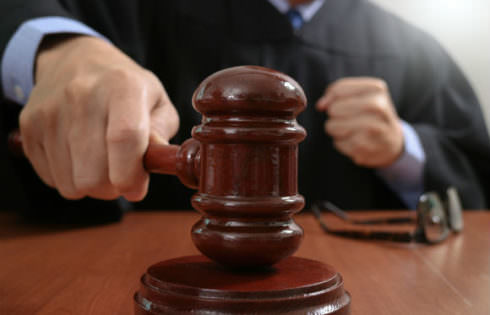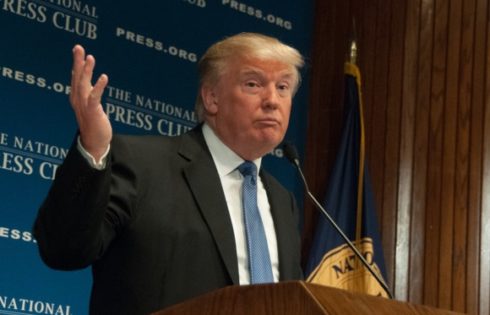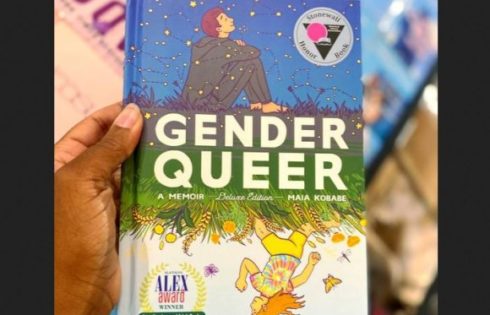
Police may need qualified immunity, but college is ‘different kind of circumstance’
A year and a half after its officials escaped personal liability for discriminating against a Christian student group for its beliefs, the University of Iowa tried to convince a three-judge panel to retain the holding on qualified immunity.
In oral argument via teleconference before the 8th U.S. Circuit Court of Appeals last week, its lawyer argued that no one before U.S. District Judge Stephanie Rose had overruled a university’s application of its nondiscrimination policy to a student group on constitutional grounds.
Iowa Solicitor General Jeffrey Thompson didn’t get far into his argument before a judge rebuked him.
When Thompson agreed that it’s “well settled” legally that a public university “should generally refrain from engaging in viewpoint discrimination,” the judge interrupted: “It’s more than that. It’s a presumption, right, that it’s unconstitutional” under the literal words from the Supreme Court. (The transcript from the hearing, which suffered from glitches from the start, rarely identifies the judge speaking.)
Religious liberty law firm Becket, representing the student group Business Leaders in Christ, argued that officials should have known that privileging one set of religious beliefs over another was unconstitutional.
Senior counsel Eric Baxter pointed to “a long line of Supreme Court cases and cases in this circuit holding that viewpoint neutrality is a sine qua non for universities managing student groups in a limited public form.”
MORE: Judge tells U. Iowa it can’t treat Christian, Muslim groups differently
The 8th Circuit itself previously denied qualified immunity to the University of Iowa on similar grounds, for rejecting a faculty applicant based on her “socially conservative” views, he said.
The case concerns the taxpayer-funded university’s decision to strip recognition from BLinC, as the club is known, for requiring leaders to affirm that sex is reserved for heterosexual marriage.
BLinC said it rejected a gay student from leadership because he refused to refrain from same-sex romantic relationships, not because of his orientation. The university nonetheless said that requirement violated its “human rights policy,” equating sexual conduct with sexual orientation.
At the same time, administrators left alone another Christian student group, Love Works, that affirms homosexual relationships and requires leaders to agree with those views.
While Judge Rose said this differential treatment was proof of viewpoint discrimination, she claimed that existing case law did not directly address “selective application of a nondiscrimination policy” in a constitutional context. (The university allowed many secular groups that limit leadership “based on protected traits” to similarly flout its policy.)
University officials weren’t so lucky the second time a Christian student group, InterVarsity, sued it for viewpoint discrimination. Rose held officials personally liable for derecognizing dozens of religious student groups following her earlier BLinC ruling that the university must treat all student groups the same.
University ignored ‘many warnings’ from Judge Rose
Becket’s Baxter also faced pointed questions from the panel, which consisted of Chief Judge Lavenski Smith, Judge Duane Benton and Judge Jonathan Kobes.
One asked him to provide case law on this specific factual situation: ” a university, a student group, and leadership.” Baxter responded that the Supreme Court’s Martinez decision, which ruled that “all comers” policies were constitutional, “strongly suggested that [club] leadership could not be subject to restriction by the university.”
Then-Justice Anthony Kennedy said that if an “all-comers policy was used to challenge leadership or to challenge the group’s views, that that would create a substantial case of viewpoint discrimination,” according to Baxter.
The lawyer corrected a judge who said case law limits government interference in religious leadership to “ministerial” employees. Justices Samuel Alito and Elena Kagan both cautioned that the term “broadly encompassed religious leadership selection,” not just ordained ministers, Baxter said.
“If they perform a religious function, as BLinC’s officers do here” by leading prayers and Bible study, “their religious leadership selection is protected under the religion clauses” of the First Amendment, he said.
Several cases make clear that viewpoint neutrality trumps nondiscrimination policies, Baxter said. Even a case that the University of Iowa cited in its favor, which upheld a university policy as viewpoint-neutral, concluded that the university in question may have discriminated in practice.
MORE: Court holds U. Iowa officials liable for discrimination against Christians
That’s similar to the University of Iowa’s response to Rose’s previous ruling, Baxter argued: It derecognized all “religious groups with leadership requirements except Love Works,” the pro-gay Christian group, and “left numerous dozens of other groups untouched that already discriminated based on protected categories.”
This was despite “many warnings” from Judge Rose “over two preliminary injunctions” that the university was singling out BLinC while leaving alone many student groups that also facially violate the human rights policy.
Regardless of viewpoint discrimination, administrators don’t deserve qualified immunity “because they violate the clearly established law” on freedom of association and exercise of religion, Baxter said. The university assured BLinC that it could require leaders to sign “statements of faith” but then derecognized it when the group created one, simply because of its views on marriage and sexuality.
Baxter quibbled with a judge who said he hadn’t apparently cited any cases “directly on point.” Several of his cited cases are relevant, the lawyer argued, citing another one from the 8th Circuit that held a nondiscrimination policy couldn’t be used to ban access by the Ku Klux Klan.
“But here we’re not even talking about something that extreme,” he said – simply a “religious group on campus trying to live out its beliefs,” which are “decent and honorable” even under the Supreme Court decision that legalized same-sex marriage nationwide.
8th Circuit oral argument, Business Leaders in Christ v. University of Iowa by The College Fix on Scribd
Judge says university implicated ‘four or five parts of the First Amendment’
The solicitor general countered that qualified immunity determinations are heavily dependent on “particularized
facts … with a high degree of specificity.”
It is simply not “well settled” in case law – the controlling standard – that a university must “decline to enforce the terms of a nondiscrimination policy against a publicly-funded student organization when faced with resolving a specific civil rights complaint by a student,” Thompson argued.
For the second time in about a minute, a judge interrupted. “[T]he record shows” that a University of Iowa administrator knew that the derecognition “implicated BLinC’s First Amendment rights … Generally, I don’t think qualified immunity protects those who knowingly and intentionally violate constitutional rights.”
Thompson responded that the First Amendment didn’t obviously apply to the dispute at the time. The university was following a state nondiscrimination law in “resolving a gay student’s complaint about sexual orientation discrimination.”
MORE: Judge blocks U. Iowa from selective enforcement against InterVarsity
Given changes to the law, including the state supreme court’s legalization of gay marriage in 2009, “the relationship between the human rights policy issue and the First Amendment issues was evolving, was changing,” he said.
A judge interrupted again when Thompson said the court’s “reasonable administrator standard” protected the university’s actions. “Doesn’t that make it worse?” the judge asked, noting that some religious groups don’t have clergy at all: “And when you’re talking about who can lead a religious organization, aren’t you head on into about four or five of the parts of the First Amendment?”
Thompson gave a rambling explanation of why the Martinez decision on “all comers” does not invalidate qualified immunity, as Baxter claimed. Martinez “absolutely rejected” BLinC’s distinction between “conduct versus status” – that a student organization could require a gay student to abstain from same-sex relationships without discriminating against his sexual orientation.
Colleges have lawyers and meetings, unlike police in a split-second decision
Administrators were “grappling with” how to comply with Judge Rose’s injunction against the university, and Rose herself concluded that case law gave her “no conclusion at all on the free exercise provision” of the lawsuit,” he said.
A judge again took issue with Thompson’s argument, citing the Supreme Court’s Trinity Lutheran ruling in favor of a church school that was denied state money to refurbish its playground.
The high court said it was “established” that “a policy that discriminates against otherwise eligible recipients by disqualifying them from any public benefit solely because of their religious character violates the free exercise clause,” according to the judge.
When the solicitor general tried to argue that this ruling was not relevant because the University of Iowa’s action was “triggered by a complaint by a student,” the judge reminded him that the complaint was “[a]bout a religious issue.”
Thompson kept returning to his physical language of “grappling” and “wrestling” – that administrators couldn’t make heads or tails of case law. “I think that that’s the purpose of qualified immunity. It serves an important public service and public purpose” in response to “difficult stuff.”
It’s not nearly as difficult as making a split-second decision in a public safety context, a judge reminded the solicitor general:
[T]he Supreme Court has given us a number of recent cases, but most of those cases have been in the law enforcement context and involve what seems like a more strict application of [qualified immunity] with respect to quick decisions of people in times of exigency. But development of an operative policy for a higher education institution being done with benefit of counsel and through meetings and the like seem to be a different kind of circumstance than a number of the qualified immunity cases.
In his rebuttal, Baxter ripped into Thompson’s argument that the university’s hands were tied because a student filed a complaint.
When the Supreme Court rebuked a school district that excluded a Christian student club from using a classroom in off-hours, it said “the government can’t rely on complainants as its only enforcement mechanism,” according to Baxter: “That gives power to the majority to silence their opposition or people who have a minority view.”
The University of Iowa has “identified no real conflict” between gay and conservative Christian rights, he continued: It’s supposed to let both groups of students “exist on equal terms on campus” regardless of “complicated, complex, and controversial views,” yet it “deliberately” violated clear case law.
MORE: University officials denied ‘qualified immunity’ for pro-life discrimination
IMAGE: Roman Samborskyi/Shutterstock
Like The College Fix on Facebook / Follow us on Twitter






Please join the conversation about our stories on Facebook, Twitter, Instagram, Reddit, MeWe, Rumble, Gab, Minds and Gettr.